 NEWS
NEWSBetty White Dead At 99: How 'The Golden Girls' Changed TV— OK! Special Report
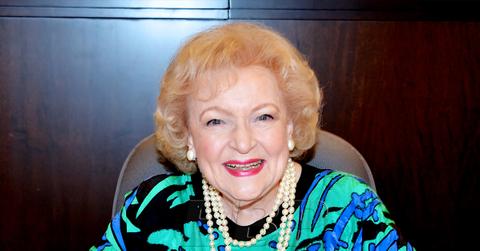
Dec. 31 2021, Published 3:13 p.m. ET
A simple idea about a group of older women living in Miami led to a winning formula that still works today.
Picture it: late summer, 1984. NBC airs a special presenting its new fall shows. Most of the program is pretty dull until two older ladies, Remington Steele’s Doris Roberts and Night Court’s Selma Diamond, take the stage to introduce what the network hopes will be its big new fall hit, Miami Vice. The shtick on the teleprompter has Selma deliberately misread the title as “Miami Nice.” Selma says she assumes it’s about “old ladies in Florida.” She and Doris get a big laugh, and NBC’s president, Brandon Tartikoff, gets an idea.
By that point, Tartikoff was already ruminating on a similar sitcom idea after watching his elderly aunt bicker with her friends on a visit to Florida. Enter Soap and Benson producers Paul Witt and Tony Thomas, who pitched NBC a show about a lady lawyer. The network’s VP of comedy, Warren Littlefield, wasn’t interested, but he shared Brandon’s brainstorm with them. Paul brought the concept home to his wife, Susan Harris, knowing she’d love it. “As soon as Paul used the word ‘older,’ that got me,” Susan told author Jim Colucci, who chronicled the show’s history in his book Golden Girls Forever. “I love to write old people, because I feel that the older the character, the better the stories [there are] to tell.” With that, The Golden Girls was born. What none of the creators could have known back then: The series would go on to run for seven seasons, win 11 Emmys and change TV forever.
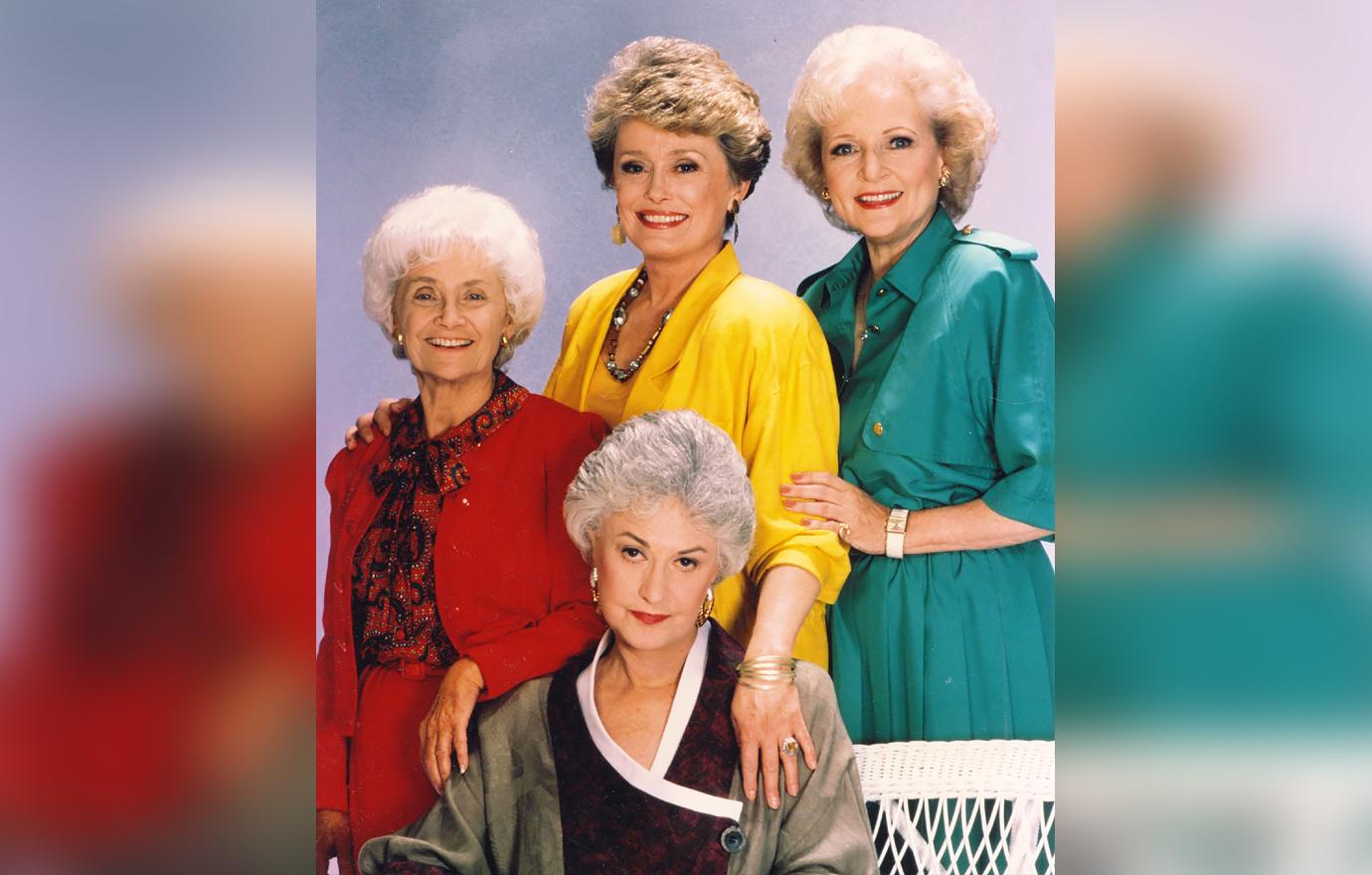
The first major priority was casting. NBC was confident that it would be easy to find the leads for the show, as Hollywood’s infamous ageism had left a great many actresses of a certain age vying for too few good roles. Selma Diamond and Doris Roberts were already taken, but it would be no problem finding the right Dorothy, Blanche and Rose, Littlefield remembers thinking. What would be tricky, though, was Sophia. How many actresses out there in their 80s could withstand the stress of a sitcom? The answer came in the form of Estelle Getty, a feisty 61-yearold New Yorker who had only begun to attract attention as the mother to Harvey Fierstein’s character in one of his hit Torch Song Trilogy plays a few years earlier.
For her third audition, Estelle took the initiative to go thrift store shopping for senior-citizen clothes (including the wicker purse she would end up carrying throughout the series). She had an NBC makeup artist spray her hair gray, went to meet the network suits and won them over with her blunt — yet charming — delivery of punch lines.
Meanwhile, after a nationwide search, the casting team ended up going back to tried-and-true TV stars in Betty White and Rue McClanahan. Already beloved as the man-hungry Sue Ann Nivens from The Mary Tyler Moore Show, Betty was a perfect fit for Blanche. Rue, who had played meeker characters like Vivian Cavender Harmon on Maude, was recruited as Rose. But then, at an early meeting with the pilot’s director, Jay Sandrich, something historic happened. After watching Rue rehearse, Jay took her aside and said, “You’re really wonderful, but I don’t for one second believe you’re innocent,” he recalls. Jay asked Rue — and, days later, Betty — to try switching roles. Rue secretly was thrilled. Though Betty initially was hesitant, she came around. In the end, Betty later admitted, “Rue took Blanche and went with her where I never would have had the guts to go.”
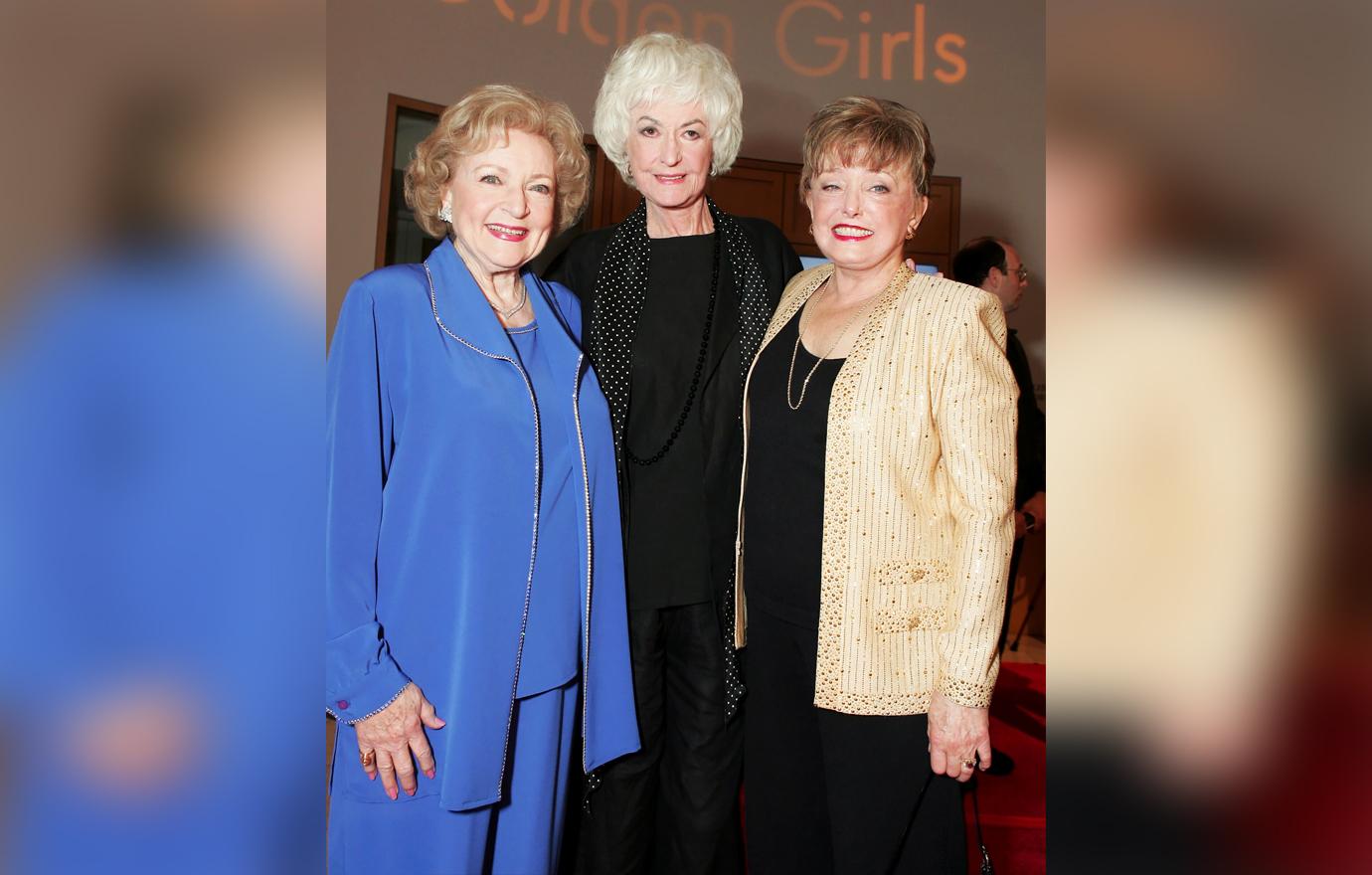
The last role to fall into place was that of the show’s anchor character, Dorothy. The network brought in Broadway actress Elaine Stritch, who had a disastrous audition. Immediately after, Susan Harris told NBC she would do the show with Bea Arthur — and only Bea. But there was a problem: Bea said no. And so Susan asked Rue to call her former Maude co-star and convince her. On the phone, Bea told Rue, “I have no interest in playing Maude and Vivian meet Sue Ann Nivens,” Rue recalled in Golden Girls Forever. But when Rue then told her about the Rose/Blanche casting switch they’d just made, Bea changed her mind, declaring, “Now that is very interesting!” She was on board.
By the early 1980s, TV critics had declared that the sitcom was dead. The ’70s had been rife with classics like All in the Family, The Mary Tyler Moore Show, The Bob Newhart Show and Taxi. But by the 1984–’85 season, the Nielsen ratings were dominated by primetime soaps like Dallas and Dynasty and action fare such as The A-Team and Simon & Simon.
NBC had started to turn things around in the fall of 1984 with the debut of The Cosby Show, which in turn helped raise the ratings of soon-to-be classics Cheers and Family Ties. But it was with The Golden Girls’ debut in 1985 that it became clear those successes were no fluke. TV comedy had entered a new era.
Want OK! each day? Sign up here!
The Golden Girls’ strongest and most immediate influence was on the network’s Saturday-evening schedule. On a night when CBS had once dominated with an all-star comedy lineup, but then languished, NBC was now king. Using The Golden Girls as a foundation, the network built a successful block of sitcoms, including the spin-off Empty Nest, and its spinoff Nurses. NBC finally was able to attract an audience on Saturday nights with quality first-run television.
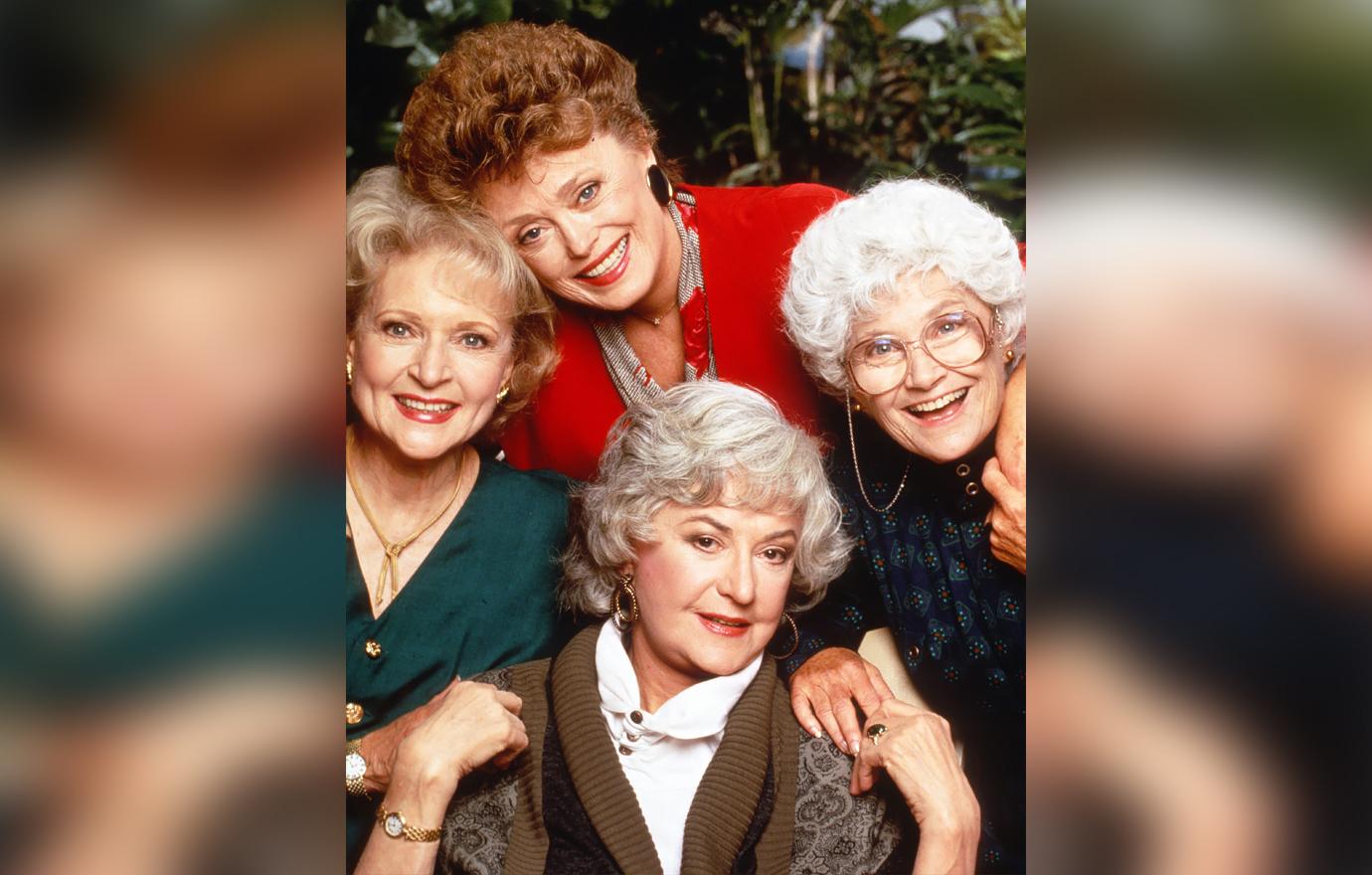
But even more than The Golden Girls affected the business of TV, the show had an impact on the structure and content of TV comedy — and even drama — itself. Earlier hit sitcoms had focused on ensemble groups of co-workers and friends, or on nuclear families. But The Golden Girls had a different formula: the perfect foursome. Dorothy represented humanity’s intellectual side, Rose its emotional and Blanche its physical. Sophia had the (sometimes questionable, always funny) wisdom of our elders. Altogether, the Brain, the Ditz, the [expletive] and the Bigmouth are, as Betty White has said, “four points on a compass.” They balance one another perfectly, and can be arranged and rearranged in story line after story line, offering conflicting points of view and producing hilarious results.
Despite its Saturday time slot, The Golden Girls finished its first season at No. 7 in the Nielsen ratings, tied with the soapy juggernaut Dynasty. So it’s no surprise that the very next season, the show would inspire another legendary comedy writer to follow its golden formula. Premiering on CBS in the fall of 1986, Linda Bloodworth-Thomason’s Designing Women featured similarly delineated characters, with Julia (played by Dixie Carter) comparable to Dorothy, Suzanne (Delta Burke) to Blanche, and Charlene (Jean Smart) clearly the Rose of the group.
In 1998 came a new show about a fabulous foursome: HBO’s Sex and the City, whose characters had similarly brainy, slutty, outrageous and naïve personalities. “So many people think Sex and the City is a younger, more modern-day version of The Golden Girls,” says former Sex and the City producer Amy B. Harris. “And I agree. Except they were eating cheesecake, and our girls were drinking cosmos.” (In 2007, in a nod to the relationship between the two shows, Bea Arthur starred as an aged version of SATC’s heroine Carrie Bradshaw in a spoof video for TV Land.)
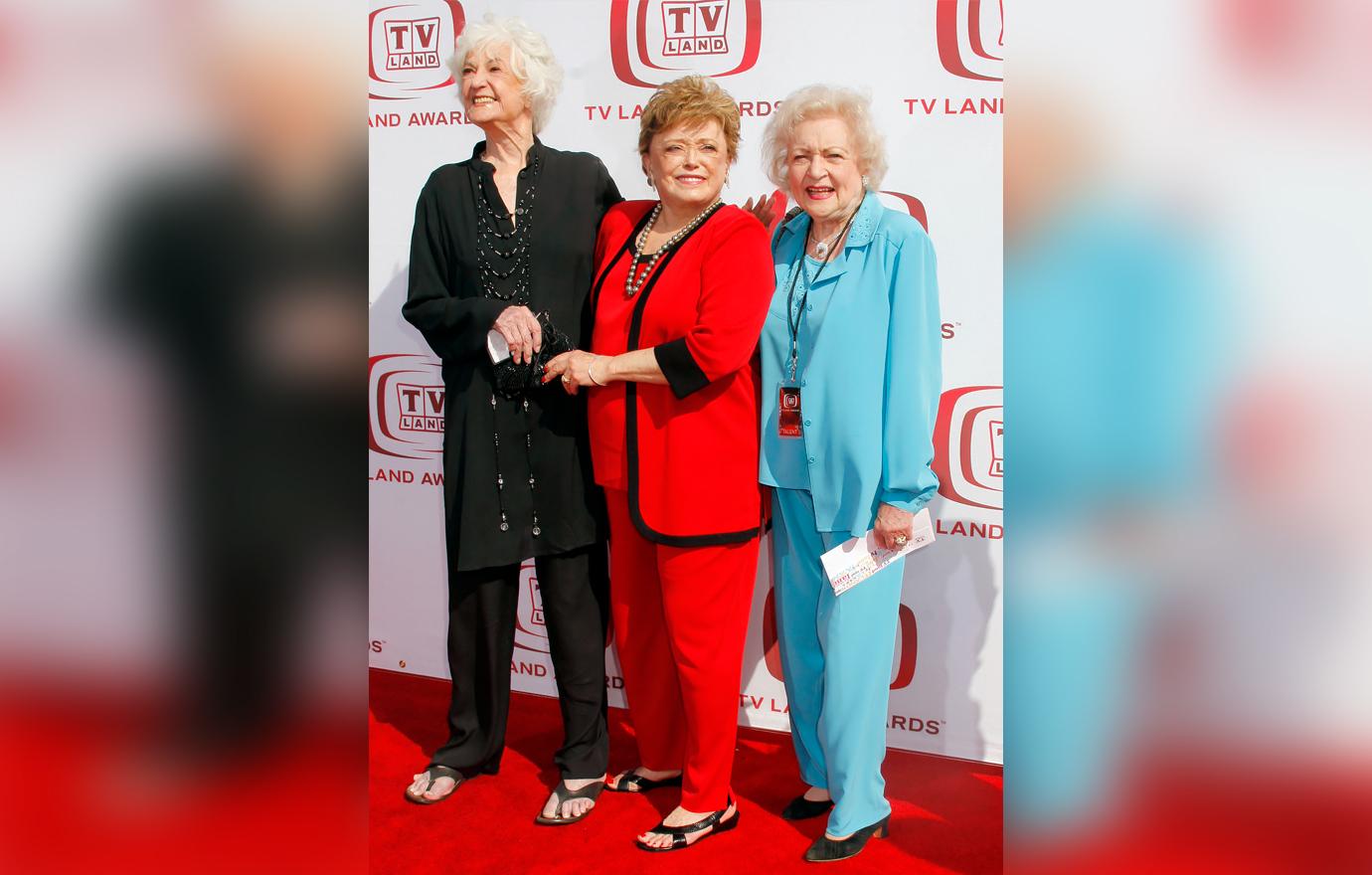
From Golden Girls writer Marc Cherry’s later creation Desperate Housewives to his Devious Maids, there has been no shortage of shows looking to tap into Golden Girls’ successful formula. The latest homage to Dorothy & Co? Girls, HBO’s hit show about four young millennial women navigating life and friendship in NYC. In the ’90s, Fox followed the formula through the lens of six black 20-somethings in its sitcom Living Single. Looking, a version populated by gay male characters, recently ran on HBO.
INSIDE ESTELLE GETTY'S 'GOLDEN GIRLS' AUDITION LANDING HER THE ICONIC ROLE OF SPITFIRE SOPHIA: WATCH
Throughout the years, thanks to the power of repeats and DVDs, The Golden Girls has remained a cultural touchstone. On the big screen, Golden Girls references pop up in films like 2013’s Nebraska, and via Ryan Reynolds’ prominently featured Bea Arthur T-shirt in 2016’s Deadpool. And on TV, shows have continued for years to write Golden tributes directly into their story lines. In 2004, two characters on Fox’s teen soap The O.C. bonded over their love of The Golden Girls. On Amy B. Harris’ CW show The Carrie Diaries in 2013, a gay high school student in suburban Connecticut found inspiration in the four ladies from Miami. In 2014, Looking featured a running Golden Girls reference that extended throughout the show’s first season. And in 2014–’15 on General Hospital, a love of Dorothy, Blanche, Rose and Sophia figured into the romance between two gay male characters and even helped one of them bond with his long-lost dad, who happened to be a straight gangster.
The Golden Girls’ influence remains so strong that these days, just about any show about a group of close friends is bound to be compared to the classic series. But any show looking to reproduce The Golden Girls’ unique charm will find itself having to compete with Bea, Rue, Betty and Estelle themselves. Because after bringing high ratings to Lifetime for 12 years, the Girls now air on cable networks like Hallmark and TV Land multiple times per day. The show’s late-night airings are among the networks’ most popular. After all, what better way to unwind after a long, tough day than to spend time with four dear, and funny, old friends?


